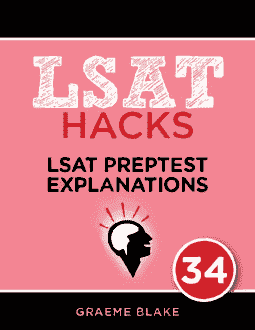QUESTION TEXT: In his new book on his complex scientific research…
QUESTION TYPE: Flawed Reasoning
CONCLUSION: Professionals don’t have to pay attention to R’s book.
REASONING: R is a jerk. He also calls people names.
ANALYSIS: This argument is nothing but an ad hominem attack. It doesn’t address whether any of the information in R’s book has value.
Ironically, the argument mostly accuses R of making ad hominem attacks.
___________
- CORRECT. The whole stimulus is just a character attack against R. But the author hasn’t shown that R is in any way scientifically incompetent.
- This is a problem with R’s book, not R. The author’s doesn’t say whether R himself had funding.
- The stimulus doesn’t even mention a scientific theory.
- It’s quite possible for a reviewer to verify what R actually said about other scientists. It also shouldn’t be hard to find out if R is arrogant or nasty.
- This is a different error. The stimulus implied that R’s work wasn’t worthy of merit because his findings about bias likely weren’t true.


This one really threw me. Does the fact that there is no mention of scientific incompetence/substance in the stimulus not disqualify A? Even if we were to grant that the author isn’t competent enough to write this particular book, does that mean we can generalize it to all areas of science about which he might write?
This is an example of a word shift that isn’t a concept shift.
R has written a science book. The conclusion is this book isn’t worth attention from serious professionals.
Which professionals….professional: yoga instructors, baseball players, acrobats, or scientists?
Only scientists makes sense. The author is arguing professional scientists needn’t care about the book. Hence we can figure they mean there’s no scientific substance.
One tip: if you determine the flaw is an attack on character, and one answer says “it uses an attack on character to [do something]” this is very likely the right answer regardless of what’s there. (Unless there is a strong alternate contender)
It is risky to ignore a major flaw match by talking yourself out of the secondary part of the answer.
Anyway, the LSAT can refer to the same concept using different words, and the test makers often expect you to make links.